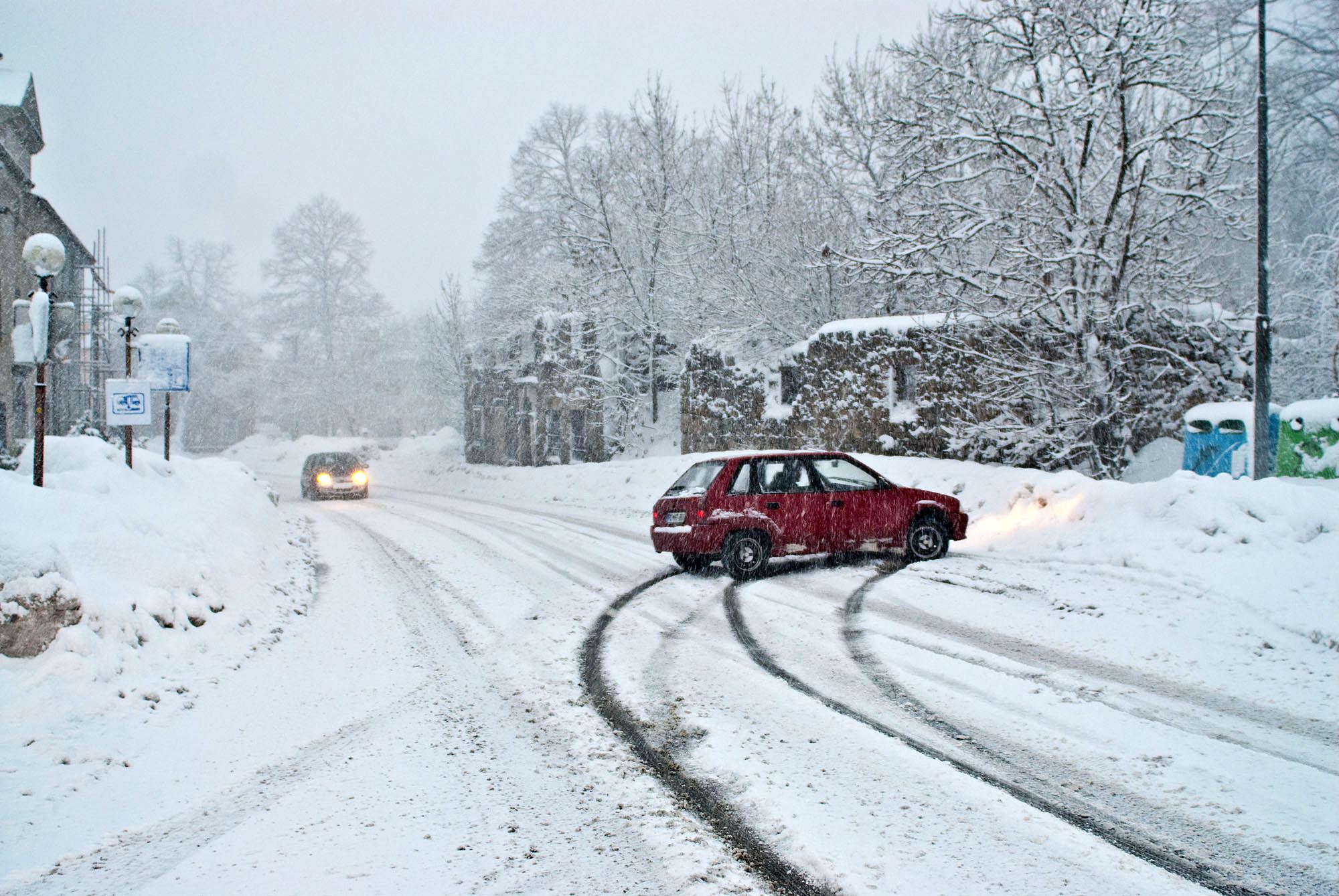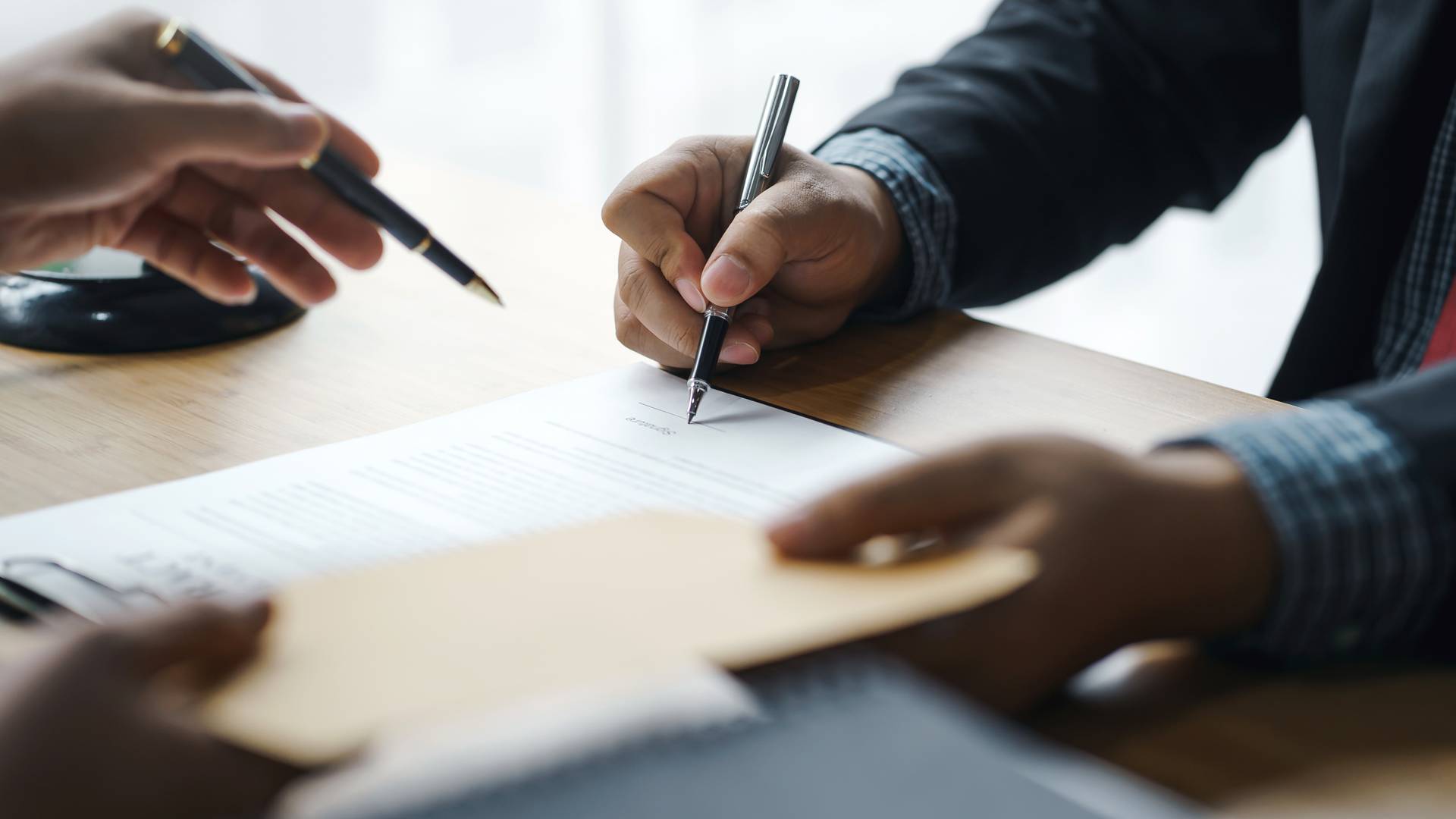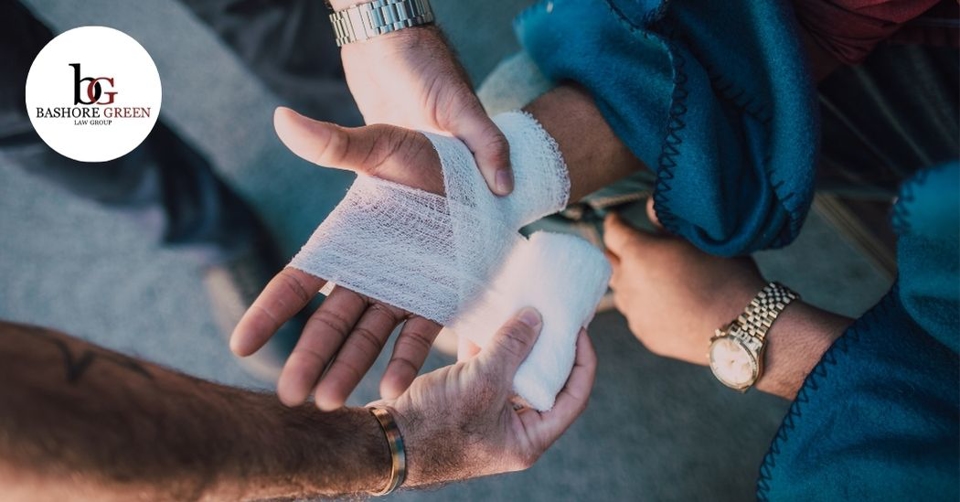Unplowed snow and icy roads are a huge problem for American drivers. In a given year, roughly 156,000 crashes (about 1-in-50 accidents) will be the direct result of drivers losing control of their vehicle in winter weather. But why do so many drivers struggle with snow and ice? To answer this, we need to look at the biggest mistakes drivers make in winter.
Driving Too Fast
When the roads are wet or icy, your tires have less grip (traction). That means your vehicle is generally less responsive in terms of acceleration, braking, and turning. With less grip, even a gentle curve can send you fishtailing off the road.
Yet many drivers ignore this fact and operate their vehicle as though there was no snow at all. Whether the roads are packed with fresh snow, freshly plowed, or covered in slush, you should slow down.
As a rule, you should aim to travel 10-15 MPH slower on icy roads than you normally would. You should also be more mindful of your acceleration and remember to smoothly and gradually get up to speed, especially when starting from a complete stop. Accelerating too fast can cause your wheels to spin in place at a stop or cause you to veer off the road on the highways.
Driving the Wrong Vehicle
You need a vehicle that is practical for your environment. A mustang or mini cooper might be nice in the summer, but the extremely low ground clearance can cause problems in heavy snowfall. It doesn’t matter how powerful your engine is; if your undercarriage can’t get clear of the snow, you’ll just spin in place.
This can be especially deceptive if you’re used to driving in the city, where the streets are plowed more often, and then visit some of the smaller towns and villages in the UP where the lake effect snow is more pronounced. You might find yourself spinning tires and unable to move at a stop sign simply because your vehicle isn’t high enough off the ground.
While driving on snow, avoid cars with a ground clearance of 4-6 inches. Instead, try to use vehicles with at least 8-10 inches of ground clearance.
Slamming the Brakes
This is, by far, the number one mistake drivers make in winter. You come up to a stoplight, and you gradually brake (like you normally would) only for the car to drift. It slides into traffic, and the harder you slam the brake, the more it rotates until you find yourself facing the wrong way.
If you have a newer vehicle, you might see an “ABS” symbol on the dash when braking on snow. This is the “anti-lock braking system,” and it’s meant to engage and help you brake when the vehicle starts skidding. However, it’s not always reliable.
If the ABS isn’t working or if you have an older vehicle, you should gradually pump the brakes. This will prevent your wheels from locking and will help you maintain control and prevent drifting as you come to a safe stop.
Panicking in a Fishtail
If your rear tires lose grip on the road, you could start skidding (also called fishtailing). This is a phenomenon where you lose control because your rear tires turn one way and your front tires turn the other. When this happens, drivers tend to panic; they instinctively slam the brakes and resist the car’s pull. However, turning the steering wheel away from the pull of the fishtail prolongs the effect until your rear wheels gain traction.
If you ever find yourself in a fishtail, you need to make a snap decision. Resist the urge to slam the brakes. Pump the brakes to slow down without skidding and then turn into the fishtail. Turning with the vehicle’s pull will help you regain traction and even out, hopefully before it leads to a severe crash.
Next time you find yourself starting to lose control on a snowy road, remember these tips and take care to use the proper techniques in terms of speed, acceleration, and braking. It just might save you from a serious wreck.
If you’ve been injured in a car crash, we can help. To discuss your case with an experienced Auburn Hills personal injury attorney from Bashore Green Law Group, please call us at (248) 487-1887 or send us an email.





